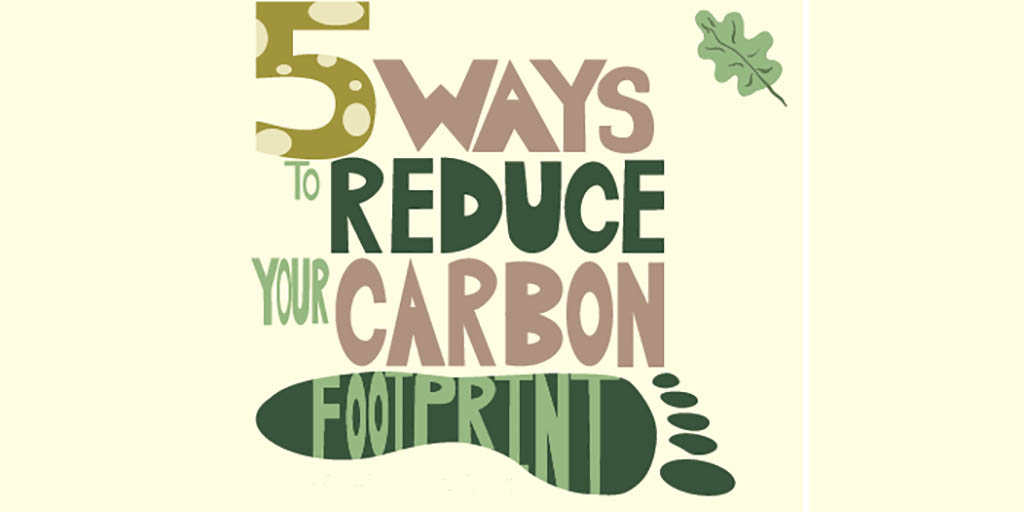5 ways to reduce your carbon footprint

Global climate change is no longer a debate or a question. The U.S. Global Change Research Program (USGCRP) released their fourth climate assessment in 2017 confirming with very high confidence, from multiple scientific sources around the world, that the Earth has risen two degrees since the start of the 20th century. The report also delves into the additional consequences of these findings stating that in the next 100 years the global water levels will rise one to four feet, precipitation patterns will change with increased intensity, and the temperature will definitely continue to rise for the next 150 years. Every individual has the power – and responsibility – to reduce their carbon footprint to prevent further climate change. Everyone has a carbon footprint that can be tracked and managed online at websites such as carbonfootprint.com, carbonzero.ca/calculate, or carbonindependent.org among many others. Aiding the environment can be a fun, easy, and rewarding process. Here are five tips to begin reducing your carbon footprint this summer:
1. Transportation Alternatives
Most people drive their car to and from work, but there are many alternatives to the morning commute including carpooling, biking and switching to an electric car. Making big changes like these will have a strong impact on your carbon footprint, however there are little ways where you can make a difference too. For example, something as simple as your driving style can affect your carbon emissions. Driving proactively and accelerating less often will lower your carbon emissions each time you hit the pedal.
2. Summer Vacation Awareness
A very common thing for families to do this time of year is drive up to a little cottage by the lake to relax. However, a lot of people are unaware of the amount of harmful emissions these trips create. A great way to cut down on foul emissions is to stay for a longer vacation, eliminating the need to make the trip as often on the weekends. Secondly, local staycations are also popular in more bustling cities like London. There is an event happening almost anywhere in the city at any time, and it is a great way to support the community.
Those fortunate enough to travel far away for the summer may not be aware of the negative effects air travel has. Commercial planes are still petroleum-based and are massive flying polluters. If you are travelling this summer via air, consider flying economy and fly shorter distances if possible.
3. Food
A great place to begin reducing carbon emissions is actually in your garden at home. Summer brings out the green thumb in anyone who appreciates pretty flowers and juicy vegetables. This is a great opportunity to make small changes with a great impact. A huge change to make is the switch from gasoline to electric garden tools. Electric garden tools run on lithium-ion batteries with a very long half-life and a charge to last almost any size job. Watering methods can also be changed to reduce water consumption. Drip irrigation systems use rain water to water your plants, giving them only the water they need.
4. Water Usage
Water is a precious resource and an issue in and of itself, however energy is used to pump, treat, and heat the water we use every day. Some simple but effective choices to lower your water usage include purchasing shower heads, toilets, and faucets that are water efficient. Washing your car less or using drip irrigation in your garden are also great ways to reduce water consumption.
5. Climate Change Garden
According to the public charity COTAP (Carbon Offsets To Alleviate Poverty), 13 per cent of greenhouse gas emissions are the result of food production and transportation. The fuel to transport food is petroleum-based while the fertilizer needed for crops is often fossil-fuel based. The meat industry consumes a lot of resources to function. It requires land, water, fuel resources, crops and human power. To get the land for agriculture the company must first deforest the land, an instant blow to the environment. Beef raised in Brazil is especially bad because tropical forests were cut down for the industry to expand. Just by cutting beef alone out of your diet will reduce your carbon footprint by 20 per cent.














